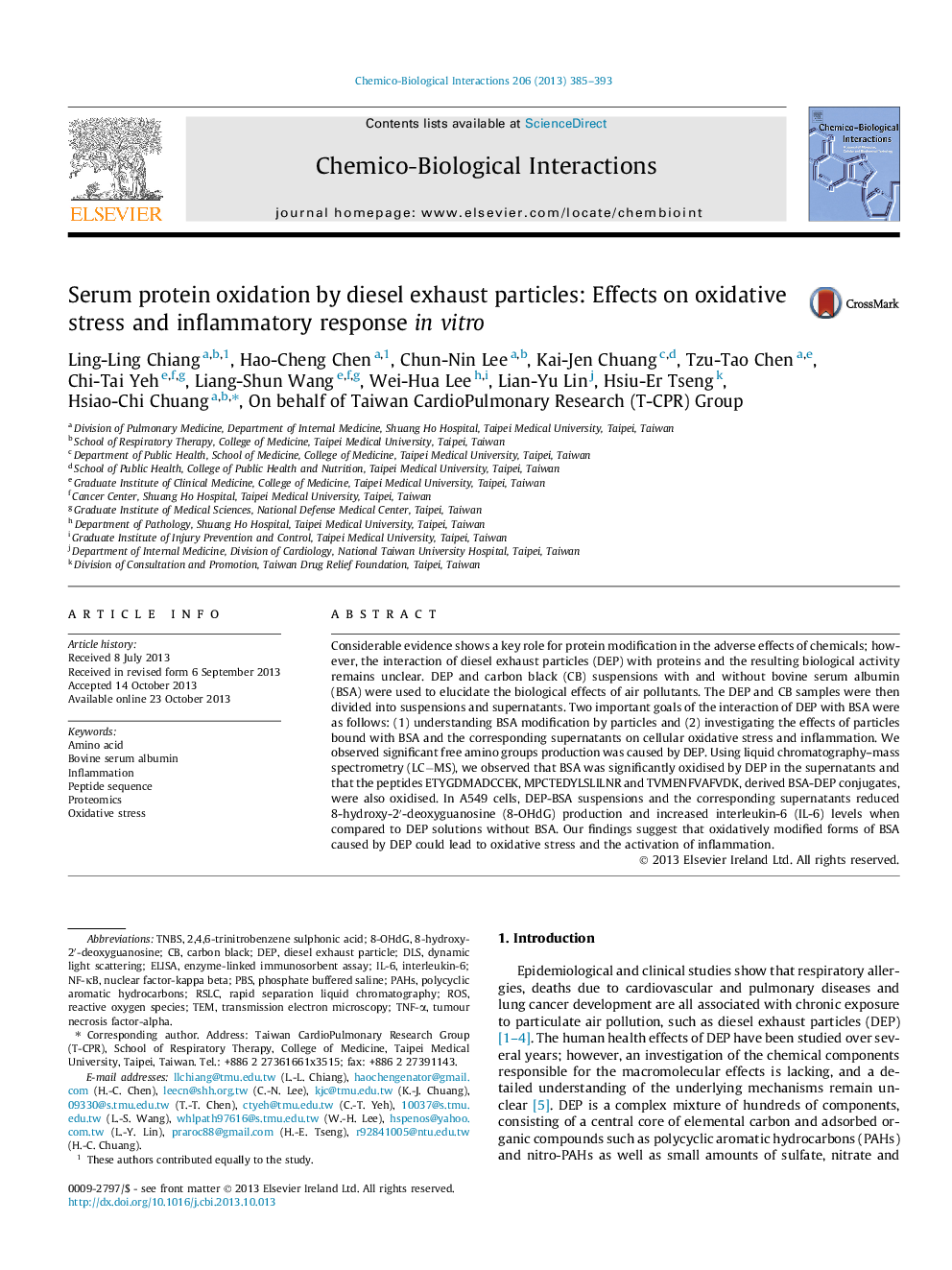| Article ID | Journal | Published Year | Pages | File Type |
|---|---|---|---|---|
| 5848146 | Chemico-Biological Interactions | 2013 | 9 Pages |
Abstract
Considerable evidence shows a key role for protein modification in the adverse effects of chemicals; however, the interaction of diesel exhaust particles (DEP) with proteins and the resulting biological activity remains unclear. DEP and carbon black (CB) suspensions with and without bovine serum albumin (BSA) were used to elucidate the biological effects of air pollutants. The DEP and CB samples were then divided into suspensions and supernatants. Two important goals of the interaction of DEP with BSA were as follows: (1) understanding BSA modification by particles and (2) investigating the effects of particles bound with BSA and the corresponding supernatants on cellular oxidative stress and inflammation. We observed significant free amino groups production was caused by DEP. Using liquid chromatography-mass spectrometry (LCâMS), we observed that BSA was significantly oxidised by DEP in the supernatants and that the peptides ETYGDMADCCEK, MPCTEDYLSLILNR and TVMENFVAFVDK, derived BSA-DEP conjugates, were also oxidised. In A549 cells, DEP-BSA suspensions and the corresponding supernatants reduced 8-hydroxy-2â²-deoxyguanosine (8-OHdG) production and increased interleukin-6 (IL-6) levels when compared to DEP solutions without BSA. Our findings suggest that oxidatively modified forms of BSA caused by DEP could lead to oxidative stress and the activation of inflammation.
Keywords
2,4,6-trinitrobenzene sulphonic acidDLSTNBSNF-κB8-OHdGDEPPBSIL-68-hydroxy-2′-deoxyguanosineROSbovine serum albuminamino acidinflammationTeminterleukin-6Enzyme-linked immunosorbent assayELISAOxidative stressPeptide sequencetumour necrosis factor-alphadiesel exhaust particleTNF-αnuclear factor-kappa betaPhosphate buffered salineTransmission electron microscopyPolycyclic aromatic hydrocarbonsPAHsDynamic Light ScatteringProteomicsCarbon blackReactive oxygen species
Related Topics
Life Sciences
Environmental Science
Health, Toxicology and Mutagenesis
Authors
Ling-Ling Chiang, Hao-Cheng Chen, Chun-Nin Lee, Kai-Jen Chuang, Tzu-Tao Chen, Chi-Tai Yeh, Liang-Shun Wang, Wei-Hua Lee, Lian-Yu Lin, Hsiu-Er Tseng, Hsiao-Chi Chuang,
